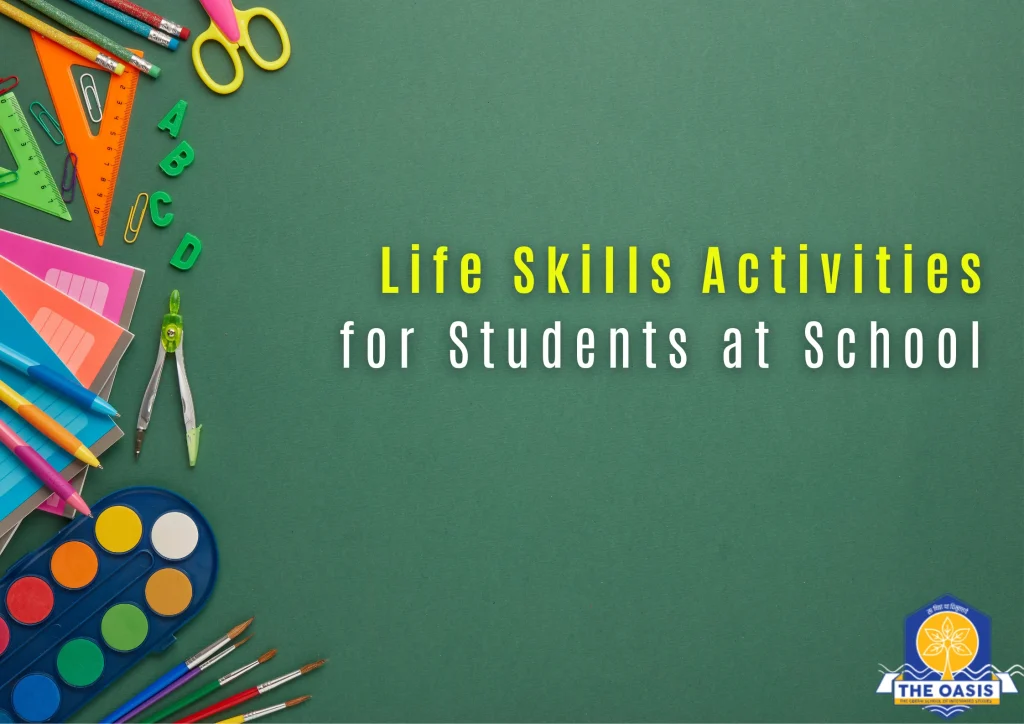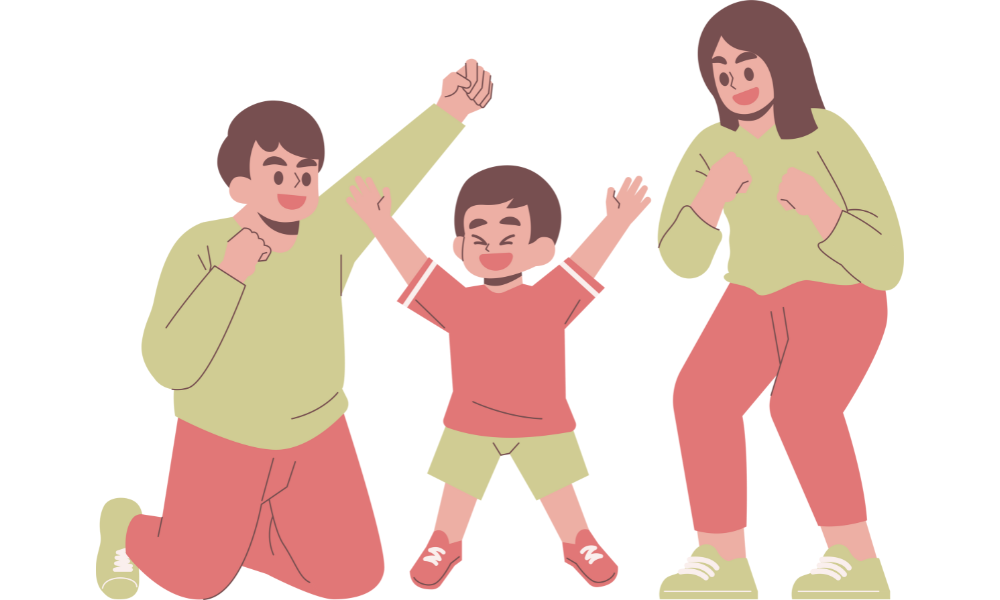
Today’s education is not just about academics. Preparing students for real life requires schools to go beyond textbooks and exams.
In this changing world, life skills have become as important as traditional knowledge. Schools are now actively focusing on Life Skills Activities to ensure that students grow up into confident, capable, and responsible individuals.
In fact, many reputed institutions, including some of the best Boys Boarding Schools in Dehradun, have started integrating life skills training into their regular curriculum.
This practical approach ensures students are ready to face challenges, make informed decisions, and lead fulfilling lives.
- What Are Life Skills Activities?
- Importance of Life Skills Activities in Schools
- Examples of Effective Life Skills Activities for Students
- How Schools Are Implementing Life Skills Activities ?
- Life Skills Activities for Different Age Groups
- Benefits of Life Skills Activities Beyond School:
- How Parents Can Support Life Skills Education ?
What Are Life Skills Activities?

Life skills are a set of abilities that enable individuals to deal effectively with the demands and challenges of everyday life. Life Skills Activities are practical exercises, tasks, or interactive sessions designed to develop these essential skills among students.
Some important life skills include:
- Communication
- Decision-making
- Problem-solving
- Critical thinking
- Emotional intelligence
- Time management
- Leadership
- Financial literacy
- Self-awareness
By practicing Life Skills Activities at school, students get hands-on experience in dealing with real-world situations in a safe and guided environment.
Importance of Life Skills Activities in Schools

In today’s fast-paced and complex world, academic excellence alone cannot guarantee success. Students need to be adaptable, emotionally strong, and socially smart to navigate their future careers and personal lives.
Here’s why Life Skills Activities are important:
- Help students manage stress and emotions effectively
- Improve social and interpersonal relationships
- Build resilience to face challenges confidently
- Foster independent decision-making
- Encourage teamwork and leadership
- Enhance self-esteem and confidence
- Prepare students for future careers and responsibilities
Incorporating Life Skills Activities ensures students are not only academically brilliant but also well-rounded individuals ready for the real world.
Examples of Effective Life Skills Activities for Students

Schools can introduce a variety of engaging and meaningful activities that develop life skills without feeling forced or academic. Here are some popular and effective Life Skills Activities:
1. Group Discussions and Debates
Encouraging students to participate in group discussions or debates helps improve their communication, critical thinking, and listening skills. It teaches them how to articulate thoughts clearly and respect diverse opinions.
2. Role-Playing and Simulation Games
Role-playing real-life situations, such as a job interview or conflict resolution, builds emotional intelligence and decision-making skills. Simulating different scenarios allows students to practice reactions and solutions in a safe setting.
3. Time Management Exercises
Simple activities like creating daily schedules, setting goals, and prioritizing tasks teach students how to manage time effectively — a crucial skill for academic and personal success.
4. Financial Literacy Workshops
Introducing concepts like budgeting, saving, and understanding the value of money at an early age can go a long way. Interactive workshops and games make financial literacy engaging and relatable for students.
5. Problem-Solving Challenges
Organizing activities like treasure hunts, puzzle-solving competitions, or design thinking workshops helps students develop analytical and problem-solving skills.
6. Team-Building Activities
Sports, group projects, and leadership camps teach students about teamwork, collaboration, leadership, and conflict resolution, all essential life skills.
7. Mindfulness and Emotional Wellness Sessions
Practices such as meditation, yoga, gratitude journaling, and emotional awareness activities improve self-awareness, focus, and emotional regulation.
8. Community Service Projects
Involving students in social initiatives like cleanliness drives, charity events, or environmental campaigns builds empathy, responsibility, and a sense of contribution towards society.
How Schools Are Implementing Life Skills Activities ?

Forward-thinking schools recognize that life skills need to be a consistent part of a child’s development journey.
Here are some ways schools are embedding Life Skills Activities into their systems:
- Dedicated Life Skills Classes: Weekly sessions where life skills are taught as a formal subject.
- Integration with Subjects: Activities blended into subjects like language, science, and social studies.
- Co-curricular Clubs: Leadership clubs, entrepreneurship clubs, or debate societies encourage skill-building.
- Workshops and Seminars: Schools invite guest speakers, conduct financial planning sessions, or leadership seminars.
- Experiential Learning: Field trips, nature camps, and project-based assignments help students apply skills practically.
This consistent exposure ensures that students internalize these lessons rather than just learning about them theoretically.
Life Skills Activities for Different Age Groups

Not every skill can or should be taught at the same stage. Schools often tailor Life Skills Activities based on the developmental age of students.
- Primary School Students: Focus on communication, empathy, personal hygiene, basic financial concepts, teamwork.
- Middle School Students: Add decision-making, critical thinking, digital literacy, emotional regulation.
- High School Students: Emphasize leadership, career planning, advanced financial management, and stress management.
By providing age-appropriate experiences, schools maximize the effectiveness of life skills education.
Benefits of Life Skills Activities Beyond School:
Students trained through regular Life Skills Activities develop abilities that extend far beyond the classroom.
These students:
- Communicate clearly and confidently in any setting
- Build and maintain healthy relationships
- Adapt quickly to changes and handle uncertainty
- Make sound financial and career decisions
- Manage their mental health better
- Contribute positively to their communities
In a competitive and ever-changing world, these skills are often the true differentiators between success and struggle.
How Parents Can Support Life Skills Education ?

Schools lay the foundation, but parents play an equally important role. To complement Life Skills Activities at school, parents can:
- Involve children in day-to-day decision-making
- Assign small responsibilities at home
- Encourage open conversations about emotions and relationships
- Teach budgeting and saving with allowances
- Support participation in community activities
- Model good life skills through their behavior
When schools and parents work together, the impact on a child’s life skill development becomes truly powerful.
Frequently Asked Questions (FAQs)
Ques 1. Why are life skills activities important in school? Ans. Life Skills Activities teach students how to manage time, work in teams, resolve conflicts, and make informed decisions skills that go beyond academics and help them succeed in life.
Ques 2. Which life skills are most important for school students? Ans. Important life skills for students include time management, communication, emotional regulation, critical thinking, decision-making, and basic financial literacy.
Ques 3. What is the role of teachers in life skills education? Ans. Teachers guide students through Life Skills Activities, facilitate open discussions, create a supportive environment, and help students reflect on their learning experiences.
Ques 4. How are Boys Boarding Schools in Dehradun using life skills activities? Ans. Some of the top Boys Boarding Schools in Dehradun like The Oasis, have incorporated life skills programs to prepare students holistically, blending academics with practical skills and values-based learning.
Ques 5. What is the best way to teach financial literacy as a life skill? Ans. Through interactive tools like budgeting games, mock shopping tasks, and student savings challenges, schools can make financial literacy fun and practical.



